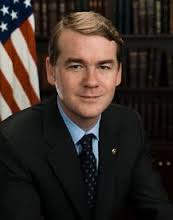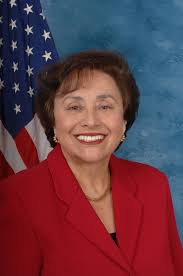
WASHINGTON, D.C. (Press Release) — U.S. Senator Michael Bennet (D-Colorado) on Tuesday, June 3, introduced a bill with Senator Jon Tester (D-Montana) that would shut the revolving door of lobbyist influence in Washington by banning Members of Congress from ever becoming lobbyists.
“Washington lobbyists shouldn’t be allowed to hold more sway than the folks back home in Colorado and around the country. Unfortunately, that isn’t always the way things happen around this place,” Bennet said. “By preventing members of Congress from lobbying when they leave Capitol Hill and closing the revolving door for senior Congressional staff, we can put the power back into the hands of the people we came here to represent and get about the business of helping the country.”
“Too many Montanans think back room deals in Washington, D.C. run this country,” Tester said. “Slamming shut the revolving door between lawmakers and lobbyists will let folks know that Congress puts constituents first and will make government more accountable to the American people.”
_____________________________
Keeping Up with Jewish Public Officials
_____________________________
A study by the Center for Responsive Politics found that about a third of former members of the 112th Congress who are currently employed are employed at lobbying firms, and more than 12,000 registered federal lobbyists actively lobbied in Washington in 2013.
To solve for the problem of outsized lobbyist influence and to close the revolving door, Bennet and Tester have proposed aggressive lobbying reform, which would:
- Place a lifetime ban on current members of Congress from becoming lobbyists;
- Increase the statutory staff restrictions on lobbying from one year to six years;
- Ban lobbyists from joining Congressional staffs or committee staffs that they lobbied for six years;
- Create a more accessible website for public reporting of lobbying activities;
- Require substantial lobbying entities to report on the non-lobbyist employees they have who are former members of Congress or former senior congressional staff, and describing those employees’ job responsibilities; and
- Increase the maximum penalty for violating the Lobbying Disclosure Act.
The bill improves disclosure requirements and promotes greater accountability. Through increased transparency, not just by federal lobbyists, but also by firms and companies that may have former members of Congress who are skirting the lobbyist line, the public will be better informed, and the lobbying profession will be deterred from acting below board. It also provides the public greater with better information and takes an important step towards cleaning up the culture in Washington.
*
Campaign Finance Reform

(Photo: Commons Wikimedia)
In another reform measure, Bennet issued the following statement for the Senate Judiciary Committee hearing on Tuesday, June 3, on his constitutional amendment with Senator Tom Udall to allow the Congress and individual states to regulate campaign finance.
“People in Colorado and across the country are tired of cycle after cycle of limitless anonymous spending on campaign ads. It overwhelms the airwaves. The Citizens United decision and now McCutcheon have done a huge disservice to the American people’s right to know who is trying to sway their vote. The voters of Colorado overwhelmingly passed an amendment to our State Constitution urging our congressional delegation to support a constitutional amendment on campaign finance reform. This amendment will ensure our elections are decided by voters and not by a small handful of billionaires who hide their identity while shaping the contours of the debate.
“The Senate has a chance to take the first step forward to reduce the influence of unchecked money distorting our electoral system and degrading our democracy.”
In the House of Representatives, meanwhile, Congresswoman Nita M. Lowey (D-New York), the senior Democrat on the House Appropriations Committee, announced her co-sponsorship of H.J.Res.25, a Constitutional amendment that would seek to limit the influence of money in politics. Lowey also signed a letter along with 62 other House Members to Senate Judiciary Committee Chairman Patrick Leahy (D-VT) in support of a public hearing on the matter beginning this week.
“Only a constitutional amendment that overturns deeply flawed Supreme Court decisions will return constitutional legitimacy to our campaign finance laws,” said Lowey. “That is why I co-sponsored this important amendment to our Constitution and why I applaud Senator Leahy’s decision to hold a public hearing, which is a critical step forward for a nationwide movement to restore the balance of power to the people for whom this democracy was founded.”
On Tuesday, June 3, Senate Judiciary Committee Chairman Patrick Leahy began a public hearing to examine S.J.Res.19, an amendment to the United States Constitution that would grant Congress and the states the power to regulate the raising and spending of money with respect to federal and state elections.
The Supreme Court’s decisions in Citizens United v. FEC and McCutcheon v. FEC ensured that wealthy individuals, corporations, and other special interest groups can disproportionately influence the political process.
Congresswoman Lowey believes that the American people deserve a clean system of campaign finance, and she urges the House Judiciary Committee to join their Senate colleagues by holding hearings on H.J.Res.25.
*
Preceding provided by Sen. Michael Bennet of Colorado and Nita Lowey of New York …. Articles in San Diego Jewish World on Jewish Democratic women in the U.S. Senate and House of Representatives are sponsored by Laura Galinson in memory of her father, Murray Galinson.